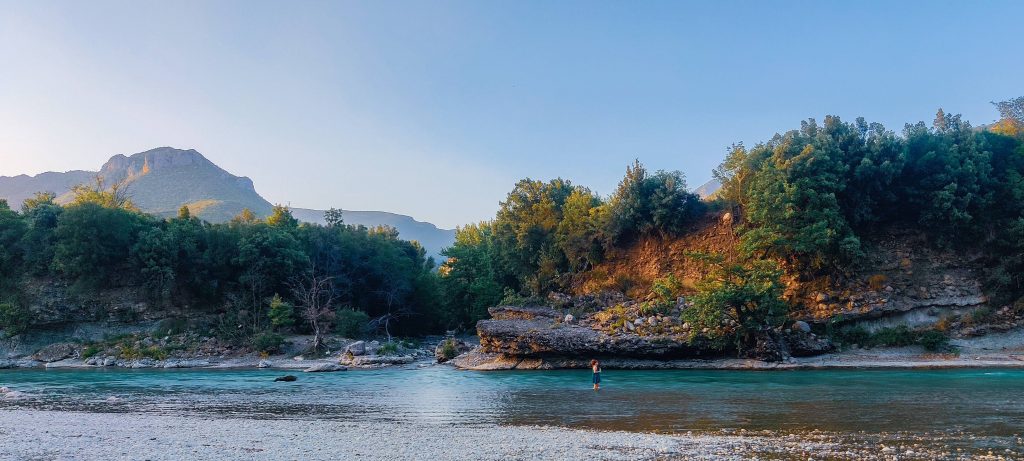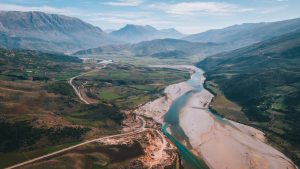
Profit for the planet: Six months on from Patagonia’s radical restructuring
In September 2022, Yvon Chouinard announced that he was giving up ownership of Patagonia, the outdoor-wear brand he started fifty years ago. Chouinard transferred 98% of the company’s stock to the Holdfast Collective, a non-profit organisation established to fight climate change using Patagonia profits. The other 2% is the voting stock, which has been transferred to the Patagonia Purpose Trust. The trust allows Chouinard and his family to retain control of the company’s board appointments and safeguard its socially conscious ethos. Chouinard’s dramatic move was one of many possible options, including taking the company public or turning it into a worker co-operative. His solution allows the company to remain intact as a profit-generating entity, without the need to bow to stockholders and their short-term ambitions. As Patagonia put it, “Earth is now our only stakeholder.” Six months on, what are we to make of this decision?
In a letter announcing the move Chouinard states, “Instead of extracting value from nature and transforming it into wealth for investors, we’ll use the wealth Patagonia creates to protect the source of all wealth.” The new Patagonia pushes philanthropic capitalism to its limits. Value is extracted from nature and transformed into funding for the protection of nature. A cynical question arises from all this: if a company is so anxious to cause minimal environmental damage, then why not cease operations and produce nothing at all? The answer is complicated.
For all its green sentiment, Patagonia knows all too well that their high-tech mountaineering clothing is immensely popular. There is a thirst for a version of the wilderness that they have helped etch into our imaginations. As well as championing nature, and the clothing needed to enjoy it, Patagonia have also leaned heavily into anti-consumerist trends. They ran an advert in the New York Times on Black Friday in 2011, exclaiming, “DON’T BUY THIS JACKET.” The ad warned of the “astonishing” cost of making their clothes, offering to promote those who sold their old Patagonia gear on eBay. The message was clear. It is very unlikely that you really need a brand new jacket – but if you do, then you can trust our products to last.
A common theme with Patagonia is that they genuinely do believe they do things better than their competitors. Plus, with only their environmental schemes profiting from the business, they can now say with a straight face that they have purer motives. Old retail platitudes such as ‘planting trees with every purchase’ are upgraded beyond recognition now that the business is owned by a non-profit. This attitude of (sometimes self-effacing) self-belief is mirrored in other areas too. Patagonia takes political stances in a way that far exceeds other companies’ lip service to social causes. In 2017, Patagonia sued the Trump administration over its decision to slash the size of two national parks to make way for mining and fossil fuel extraction. Then in March 2023, Patagonia, alongside environmental groups, negotiated with the Albanian government to create a national park for the Vjosa River – one of the last undammed “wild” rivers in Europe. Via the Holdfast Collective, Patagonia has given $4.6 million to the new national park project. The expressly political, even diplomatic, nature of Patagonia’s activism is typical of their self-confidence.

The “wild” Vjosa River. Photograph: Nicolas Jehly, Unsplash
It has been pointed out that Patagonia’s radical ownership transfer has allowed them to sidestep a hefty tax bill. This issue is deeply interwoven with their confidence in their green mission. How could they operate as a charity-funding-business if their profit-machine was broken up in the process? Their way around this solved other problems too. Patagonia’s new non-profit owner was set up as a 501(c)(4): an entity which can make political contributions. Patagonia’s involvement in the Vjosa River campaign provides a first glimpse of what a $3 billion dollar company can achieve when its profits are channelled into funding climate initiatives. Even more questions remain about the democratic legitimacy of a corporation using its financial bulk to step into the ring as a political player. The impressive success of these interventions only makes those questions more complicated.
Sources
Clear Estate (2022). Patagonia Trust Analysis: Values Driven or Money Driven? https://www.clearestate.com/blog/patagonia-trust-analysis-values-driven-or-money-driven
Forbes (2022). Yvon Chouinard And The Patagonia Purpose Trust. https://www.forbes.com/sites/matthewerskine/2022/09/16/yvon-chouinard-and-the-patagonia-purpose-trust-what-is-it-and-will-it-work/?sh=16b90def2deb
Guardian (2023). ‘Historic moment’ for nature as Europe’s first wild river national park announced in Albania. https://www.theguardian.com/environment/2023/mar/15/albania-vjosa-wild-river-national-park-europe-first-aoe
Nonprofit Quarterly (2023). Remaking the Economy: Caring for the Care Economy. https://nonprofitquarterly.org/remaking-the-economy-caring-for-the-care-economy/
Patagonia (2011). Don’t Buy This Jacket. https://www.patagonia.com/blog/wp-content/uploads/2016/07/nyt_11-25-11.pdf
Patagonia (2019). Hey, How’s That Lawsuit Against the President Going? https://eu.patagonia.com/gb/en/stories/hey-hows-that-lawsuit-against-the-president-going/story-72248.html
Patagonia (2023). Vjosa National Park. https://eu.patagonia.com/gb/en/vjosa-national-park/
Yvone Chouinard (2022). Earth is Now our Only Shareholder. https://eu.patagonia.com/gb/en/ownership/
Bio
 Sam Toscano is a PhD student in the Politics department at the University of Manchester. His research investigates sustainability communications. Sam is affiliated with the SCI (Sustainable Consumption Institute).
Sam Toscano is a PhD student in the Politics department at the University of Manchester. His research investigates sustainability communications. Sam is affiliated with the SCI (Sustainable Consumption Institute).
- LinkedIn: https://www.linkedin.com/in/samuel-toscano
- Twitter: @SamToscano2
Header image: Eni Lale, Unsplash

0 Comments